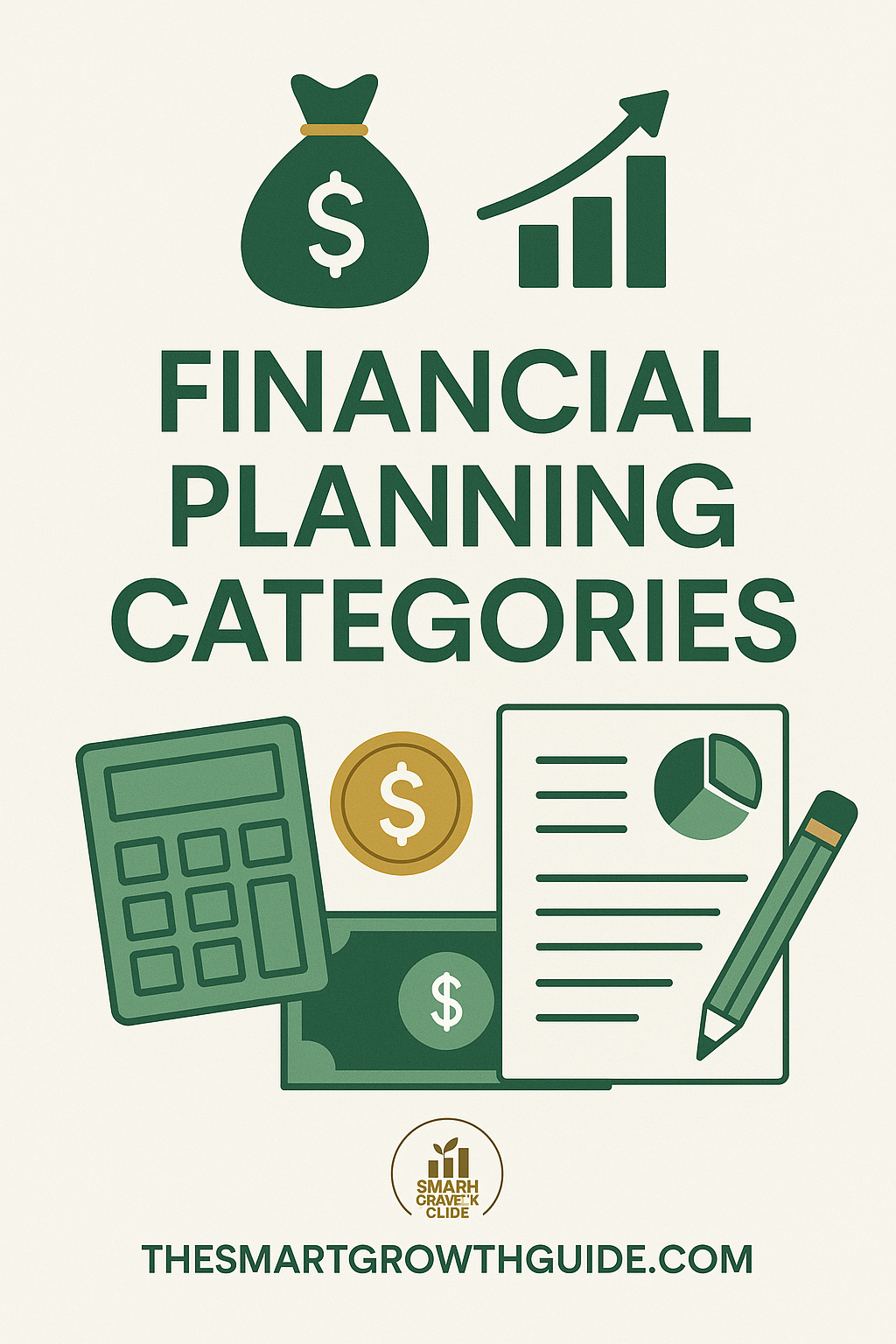Financial planning is the cornerstone of a secure and prosperous life. Whether you are an individual seeking financial stability or a business striving for growth, understanding the key categories of financial planning can help you make informed decisions. In this article, we will explore the essential categories of financial planning and how they contribute to a well-rounded financial strategy.
1. Income Planning
Income planning involves analyzing your current income sources and finding ways to optimize them. For individuals, this could mean negotiating a salary increase, starting a side hustle, or investing in skills that enhance earning potential. For businesses, it involves maximizing revenue streams and ensuring consistent cash flow.
Key Tips:
- Track your income and expenses using budgeting apps.
- Diversify income streams to reduce dependency on a single source.
2. Expense Management
This category focuses on controlling spending habits to align with your financial goals. Proper expense management ensures that your spending does not exceed your income, helping you avoid debt and save for the future.
Key Tips:
- Categorize expenses into needs, wants, and savings.
- Create a monthly budget and stick to it.
- Use tools like the 50/30/20 rule to allocate income effectively.
3. Savings and Investment Planning
Saving and investing are crucial for building wealth and achieving financial independence. This category involves setting aside money for short-term needs and investing for long-term goals.
Key Tips:
- Set up an emergency fund covering 3-6 months of expenses.
- Explore investment options like mutual funds, stocks, or real estate based on your risk tolerance.
4. Tax Planning
Tax planning is about managing your finances to maximize tax benefits while ensuring compliance with the law. Effective tax planning can help you save money and invest it elsewhere.
Key Tips:
- Take advantage of tax-saving instruments like ELSS or retirement accounts.
- Consult a tax professional to stay updated on deductions and credits.
5. Retirement Planning
Planning for retirement ensures that you can maintain your lifestyle even after you stop earning. It involves estimating future expenses and creating a financial strategy to meet those needs.
Key Tips:
- Start early to leverage the power of compounding.
- Invest in retirement plans like PPF, NPS, or 401(k) accounts.
6. Insurance Planning
Insurance planning protects you and your loved ones from unforeseen financial burdens. This includes health insurance, life insurance, and property insurance.
Key Tips:
- Assess your insurance needs based on your life stage.
- Choose policies with adequate coverage and affordable premiums.
7. Estate Planning
Estate planning ensures that your assets are distributed according to your wishes after your demise. It involves creating a will, establishing trusts, and assigning beneficiaries.
Key Tips:
- Regularly update your will to reflect life changes.
- Consult an estate planner for complex asset structures.
Final Thoughts
Financial planning is not a one-time activity but a continuous process that evolves with your life goals and circumstances. By focusing on these categories, you can build a robust financial foundation and achieve long-term success.
Actionable Steps:
- Conduct a personal financial audit today.
- Prioritize one category to improve each month.
- Seek professional advice for specialized planning.
For more insights on financial planning, technology, and growth strategies, explore The Smart Growth Guide. Stay tuned for actionable content designed to help you grow smarter every day!


